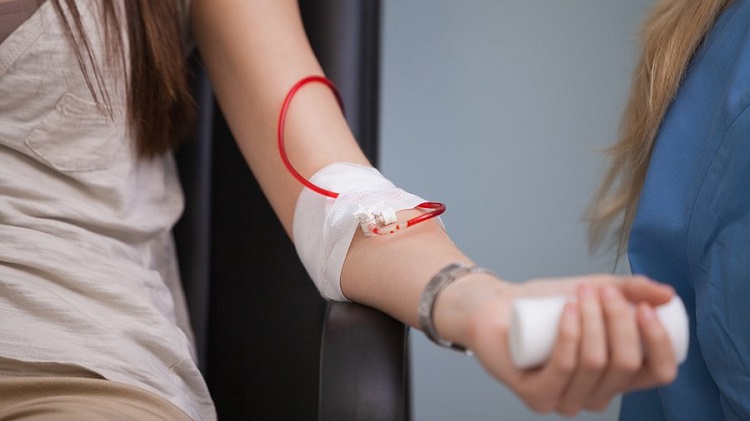Iron is a critical nutrient that helps your body and baby stay healthy. It also keeps your blood oxygenated so your fetus can breathe.
During pregnancy, your iron needs increase by about 40%. This increase occurs because you’re growing and producing more blood to support your fetus and placenta.
Table of Contents
Prevents Anemia
Iron is an essential nutrient that helps the body produce hemoglobin, a pigment in red blood cells. It transports oxygen throughout the body and keeps you and your baby healthy.
During pregnancy, you’ll need more iron than usual because your body makes more blood to carry the extra nutrients and oxygen needed for your growing baby. Without enough iron, your body may not produce adequate hemoglobin levels, and you’ll become anemic.
You can prevent anemia during pregnancy by eating a well-balanced diet and taking the best prenatal vitamins containing iron. Among the best sources of iron are lean meat, poultry and fish, enriched breakfast cereals and dark green leafy vegetables.
It’s also important to note that the iron in your prenatal supplement may be absorbed better if you take it with foods or drinks that contain high levels of vitamin C. Orange juice, for example, is an excellent source of this nutrient.
If you are anemic or have low iron levels, your doctor may prescribe a daily iron supplement to help correct the problem. If you’re taking a prenatal vitamin, look for one that includes a small dose of vitamin A and vitamin C to help your body absorb iron.
Supports the Development of the Fetus
Iron is an essential nutrient for the fetus and other pregnancies, as it is required for red blood cell production, brain development, and the growth of muscles. It also helps prevent anemia and supports the immune system.
The fetus can obtain iron through both dietary sources and iron supplements. Fetal iron is primarily transferred from the mother’s blood to the placenta via transferrin receptor 1 (TFR1) in the syncytiotrophoblast [37,38]. Still, it can also enter the trophoblast directly through the heme receptor LRP1 or non-heme receptor ZIP8 and ZIP14.
Maternal iron deficiency is associated with adverse outcomes for the fetus, including ID, small for gestational age (SGA), intrauterine growth restriction (IUGR), and complications in neonatal development, such as delayed brain development. Several animal studies and human clinical trials have shown that ID negatively affects offspring’s psychomotor development, behavioral traits, and cognitive function.
However, the impact of maternal iron status on fetal iron storage is uncertain, as many factors influence fetal iron supply and transport across the placenta. Some of these include:
While some studies have shown that ID in utero affects a specific region of the developing fetal brain, it is unclear whether the damage is due to iron deficiency alone or other factors that may contribute to ID. Nevertheless, future randomized, controlled clinical trials should evaluate the effect of prenatal iron supplementation on fetal growth and fetal brain development in iron-deficient pregnant women.
Supports the Immune System
Iron plays a critical role in both innate and adaptive immune responses. It is involved in the polarization of macrophages, neutrophils, NK cells and B lymphocytes, thereby regulating the cellular immune response.
In innate immunity, several immune cells, such as macrophages, dendritic cells and neutrophils, protect the host by rapidly responding to pathogen invasion. These cells phagocytose pathogens, activate the inflammatory response and produce antimicrobial mediators such as TNF-alpha. Innate immunity is an essential first defense against bacteria, viruses, and parasites, but it can be compromised in chronic inflammatory conditions such as cancer or autoimmune diseases.
To study the influence of iron on innate and adaptive immunity, we used an acute and chronic iron-loaded model in mice. Initially, 10mg of iron dextran was injected into the peritoneal cavity of mice once a day for 18 days. The T cell and B cell populations were decreased in the peripheral blood of iron-loaded mice. Still, monocyte/macrophage and neutrophil numbers increased compared to control mice administered dextran. In addition, the CD4+Foxp3+ regulatory T cells (Treg) population was significantly reduced in the iron-loaded mice compared to control mice.
This study provides new insights into how the immune system fights infection and could help scientists better to understand the connection between iron status and infectious disease. Furthermore, increasing blood iron levels when iron levels are low might boost the immune response to vaccines and infections.
Bioavailability
Iron is a vital mineral essential for the fetus’s development. It is necessary to produce red blood cells responsible for transporting oxygen to the fetus and supporting its growth.
Iron may be found in various dietary sources, including red meat and green leafy vegetables. It is essential to get enough of it in the diet during pregnancy.
However, many women need to absorb iron more effectively. Several factors can contribute to the poor absorption of iron. For example, a healthy digestive system is critical for the body to extract and utilize iron effectively.
This is one reason you must choose a prenatal vitamin that provides iron in an easily absorbed form. In addition, you should ask your doctor about the different forms of iron and what would be most appropriate for you.
In a study published in the US Pharm, researchers compared the bioavailability of two different supplements: powdered and tablet. They ingested each supplement in a crossover design and measured the change in serum iron concentrations three, four and 8 hours after administration.
They found that the powdered supplement provided significantly less absorbed iron than the tablet supplement. This was a significant difference and should be considered when selecting a prenatal supplement with iron.










Comments